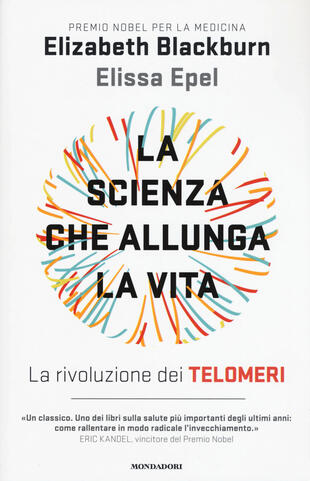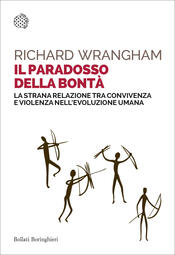

Sinossi
Perché le persone invecchiano in modo così diverso l'una dall'altra? Perché alcune arrivano alla terza età con la mente lucida, fisicamente sane e piene di energia, mentre altre, magari più giovani, mostrano precocemente i segni e gli acciacchi tipici della vecchiaia? E, soprattutto, si può fare qualcosa per ritardare gli effetti più invalidanti della terza età? Elizabeth Blackburn, biologa molecolare premio Nobel per la medicina, ed Elissa Epel, psicologa della salute, si confrontano con questi interrogativi alla luce dei risultati di una loro recentissima, e per molti aspetti rivoluzionaria, ricerca, che ha identificato i principali «responsabili» dell'invecchiamento degli esseri umani nei telomeri, le minuscole porzioni di DNA che rivestono le parti terminali dei cromosomi, proteggendoli dal deterioramento del materiale genetico. Con il passare del tempo, infatti, i telomeri tendono ad accorciarsi e, quindi, a perdere di efficacia nella loro azione di prevenzione del deperimento cellulare. La velocità con cui la loro lunghezza si riduce, però, non è costante e uguale per tutti, ma cambia da individuo a individuo, e dipende tanto da fattori genetici (come alcune malattie, fortunatamente rare) quanto dall'equilibrio psichico e dallo stile di vita. La buona notizia - ed è questa la straordinaria scoperta delle due autrici - è che tale processo non è affatto irreversibile, anzi ciascuno di noi può fare qualcosa per bloccarlo o, addirittura, invertirne la direzione. Le numerose evidenze scientifiche raccolte da Blackburn ed Epel hanno infatti dimostrato che nutrirsi in modo sano e naturale, praticare una corretta attività fisica, affrontare le situazioni stressanti senza lasciarsene sopraffare, e persino prendersi cura dell'ambiente in cui si vive, sono armi efficacissime non solo per contrastare l'accorciamento dei telomeri, ma anche per favorirne la crescita, in modo che possano continuare a svolgere al meglio la loro funzione.
- ISBN:
- Casa Editrice:
- Pagine: 401
- Data di uscita: 28-03-2017
Recensioni
"Groundbreaking book" is going a little far. It was an interesting book that added basically no new information to the pantheon. If you don't have time to read this book, here is the TLDR: Don’t be a caregiver Be White Don’t be poor Exercise at least 3x a week Eat Fruits/Veggies Don’t Smoke Be thin (at leas Leggi tutto
Honestly what the hell man, I thought I was picking up a book by a Nobel Laureate about their biology research but instead what I got was a book written by some health psychologist pushing the latest advice on being healthy that I'd already heard. I feel like yeah maybe I should have anticipated it
The new field of telomere research is fascinating. Telomeres obviously have a big effect on our lives and on our aging. Elizabeth Blackburn is a co-discoverer of telomerase, an enzyme that helps to replenish telomeres. For this discovery, she won the Nobel Prize in physiology. She well deserves that Leggi tutto
I have to start by saying my PhD research was in this field. I was SO excited to read Dr Blackburn's book since I have been out of the field for a decade. As a scientist, I found it much like reading a very long review. I found myself wondering if in trying too hard to make it accessible, it just go Leggi tutto
Breaking news: exercise is useful in the fight against aging. And here, from a Nobel prize winning scientist is the science to back it up. And by the way: drink clean water, eat organic fruits and vegetables; stay away from processed foods; develop a loving close-knit social network. All of these th Leggi tutto
Our chromosomes are protected with caps at the end of the chain, sort of like aglets at the end of shoelaces. Called telomeres, these end caps can lengthen or shorten depending on many factors that we choose (such as diet, activity levels, relationships), that happen to us (trauma, genetics), or tha Leggi tutto
Have you ever wondered why some sixty-year-olds look and feel like forty-year-olds, and why some forty-year-olds look and feel like sixty-years-olds? More importantly - can you choose which outcome will happen to you? Written by Nobel Prize winner Dr. Elizabeth Blackburn and health psychologist Dr E Leggi tutto
Citazioni
Al momento non ci sono citazioni, inserisci tu la prima!























